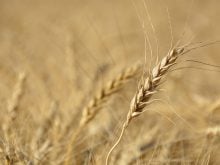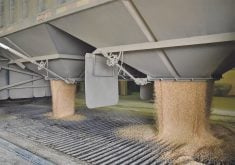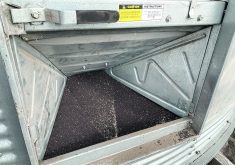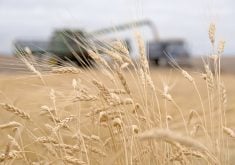LSM Commodities operates elevators in Saskatchewan and Manitoba and buys grain from producers across the Prairies
WINNIPEG — Kelly Arthurs has never had a problem with non-payment for a grain delivery — until this spring.
On May 10, two semi-trucks came to Arthurs’ farm in west-central Saskatchewan and loaded up with red lentils.
Arthurs waited weeks for payment from LSM Commodities, a Saskatoon grain dealer, but the cheque never arrived.
Read Also

Saskatchewan looks to expand trade in Indonesia
Saskatchewan intends to increase its agricultural partnership with Indonesia.
“Twice I was told that cheques were being cut in LSM’s office, and they would be in the mail,” said Arthurs, who lives near the town of Marengo close to the Alberta border.
“I’ve had three businesses in almost 45 years…. I’ve never had anybody, ever, short me on any kind of significant payment, on grain or any business I’ve ever had.”
After weeks of non-payment for the lentils, valued at $45,000 to 50,000, Arthurs contacted the Canadian Grain Commission.
Near the end of July, the commission pulled the licence of LSM Grain Ltd.
“LSM Grain Ltd. held one grain dealer licence in Saskatoon. Their licence was revoked effective July 23, 2024, and CGC’s Audit Unit is conducting an onsite final audit of (their) outstanding financial liabilities to producers,” Christianne Hacault, a CGC spokesperson, wrote in an email.
“If producers are owed money for unpaid deliveries to LSM Grain Ltd., they should contact the CGC immediately.”
As of late July, the CGC didn’t know how many farmers are owed money for unpaid grain deliveries to LSM.
But while LSM was licensed, the dealer purchased grain from producers in Manitoba, Saskatchewan and Alberta.
“(Farmers) may be eligible for compensation through our Safeguards for Grain Farmers Program,” the grain commission said in a release.
“When a licensed grain company fails to pay grain farmers, our Safeguards for Grain Farmers Program uses the company’s security to pay them if their claim is eligible.”
LSM Grain serves the food industry, pet food and animal food industry, its website said.
“LSM Commodities Ltd. is an organic and conventional trading company…. Our goal is to provide a link between suppliers and end-users.”
Arthurs had never dealt with LSM Commodities until this spring.
Last fall he provided samples of the lentils to MGX, an online platform that connects sellers and buyers of grain in Western Canada.
MGX called Arthurs in April, saying it had a buyer for his lentils.
That buyer was LSM Commodities.
“They (LSM) called me for pickup, in late April,” Arthurs said.
“They have their own fleet of trucks.”
The pickup happened, but the cheque never arrived in Arthurs’ mailbox.
Arthurs said he spoke with farmers who are in the same boat while attending the Ag in Motion farm show in mid-July.
“There’s quite a few people that aren’t paid.”
The grain commission audit of LSM Grain will eventually determine how much money is owed to producers and who is eligible for payment through the CGC protection program.
Commission auditors have been busy in Saskatchewan this year.
In mid-May, the CGC revoked six licenses for Global Food and Ingredients, a plant-based and plant protein company with facilities in Saskatchewan and Alberta.
GFI had a grain dealer licence and three primary elevator licences for its Saskatchewan facilities in Lajord, Sedley and Zealandia.
It also had two process elevator licenses in Bowden, Alta., and Zealandia.
GFI announced in May that it was shutting down operations because the company couldn’t service its debt.
A number of Prairie farmers delivered peas, lentils and other crops to GFI but did not receive payment.
The grain commission has now completed its audit of GFI, Hacault said.
“Producers who have filed a claim (with the CGC) can expect to receive information regarding their specific claim in late July or early August,” she said.
“At that point, individual producers will learn whether the CGC has determined their claims to be eligible or ineligible, and the estimated amounts.”















